The most common cause of a loud electrical popping sound is a loose or faulty electrical connection. This can occur when the wires inside an electrical device or appliance become loose or the connections inside an electrical outlet or switch become worn over time.
When electricity flows through an open or faulty connection, it can create an electrical arc, which produces a loud popping sound.
Can Electrical Outlets Make a Popping Sound?
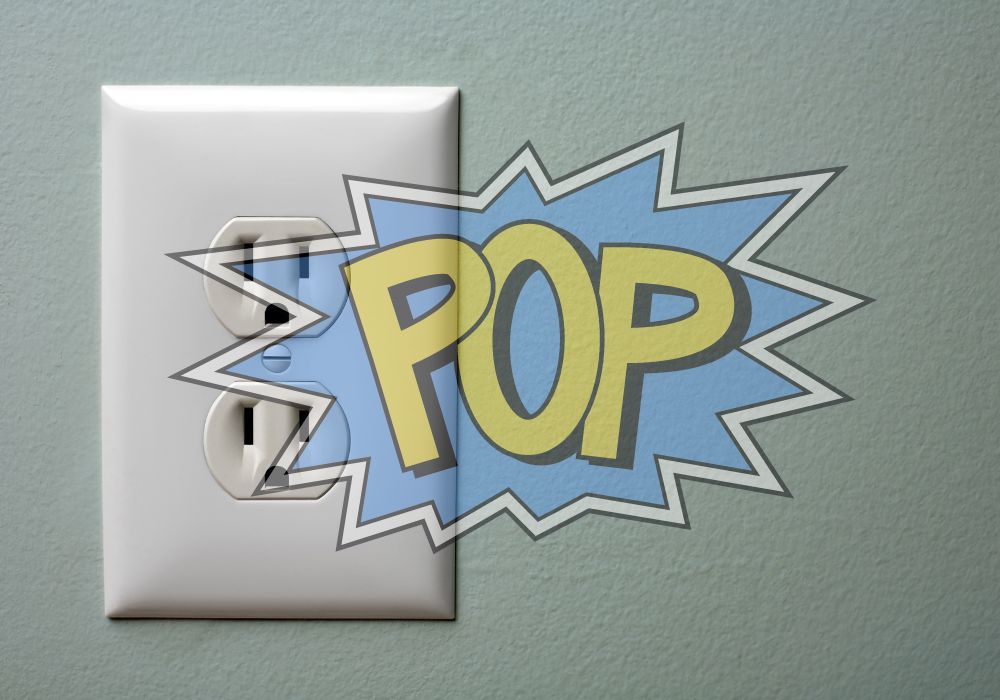
Yes, electrical outlets can make a popping sound, especially if they’re old or have been used frequently over time. Electrical outlets are designed to provide a safe and reliable connection between your electrical devices and your home’s electrical system.
However, over time, the electrical contacts inside the outlet can become worn or loose, creating an electrical arc and producing a popping sound. These sounds are typically a sign of a problem with the electrical connection inside the outlet, which can be caused by worn or loose connections or even a power surge.
It’s essential to promptly address any issues with your electrical outlets to ensure a safe and reliable connection between your devices and your home’s electrical system. Ignoring the problem can put you and your home at risk of electrical fires, appliance damage, and other hazards.
Suppose you’re experiencing popping sounds or any other issues with your electrical outlets. In that case, it’s best to contact a licensed electrician to diagnose and fix the problem.
What Does It Mean When Electricity Pops?
When electricity pops, it usually means a problem with the electrical system. The popping sound is caused by an electrical arc, a sudden burst of electrical energy that creates a spark.
Electrical arcs can occur when there is a loose or faulty connection in an electrical device or appliance or a problem with your home’s wiring or electrical outlets.
Apart from being a nuisance, these sounds can pose serious risks and hazards to the homeowner and their property. This section will discuss the potential risks and dangers of electrical popping sounds.
Potential Damage to Electrical Devices and Appliances
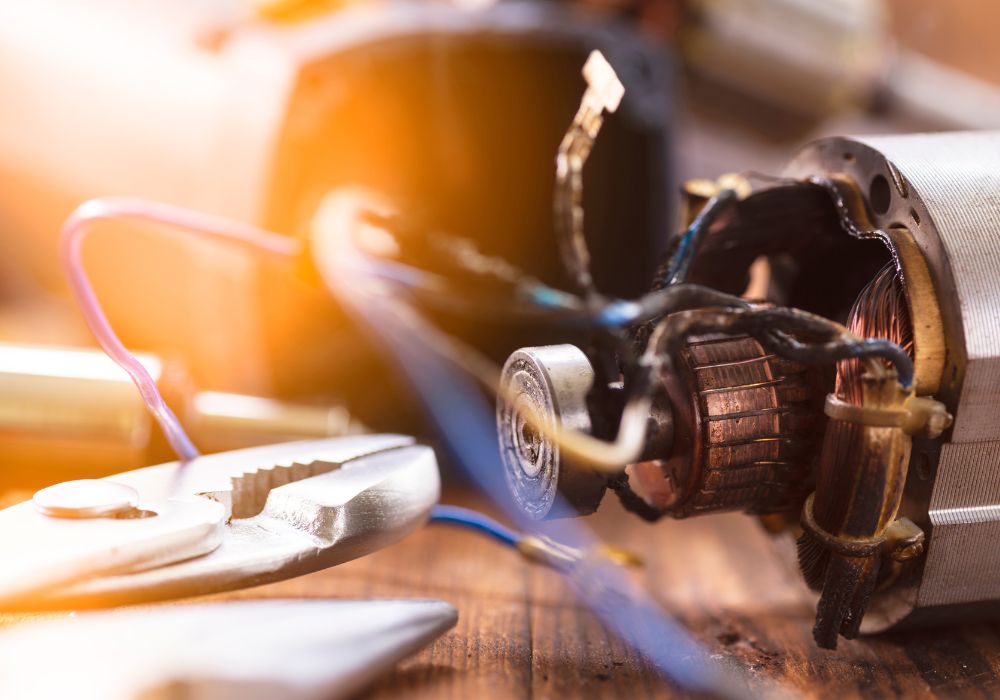
Electrical popping sounds can indicate a problem with the wiring or electrical connections in the house. This can cause damage to electrical devices and appliances, as well as decrease their lifespan.
For example, suppose an electrical surge occurs due to a faulty connection. In that case, it can damage electronic devices such as computers, TVs, and sound systems.
Sometimes, the damage may be irreversible, requiring costly repairs or replacements.
You must address electrical popping sounds as soon as they are noticed. Calling a licensed electrician to inspect and repair the problem can help prevent any further damage to your electrical devices and appliances.
Risk of Electrical Fires
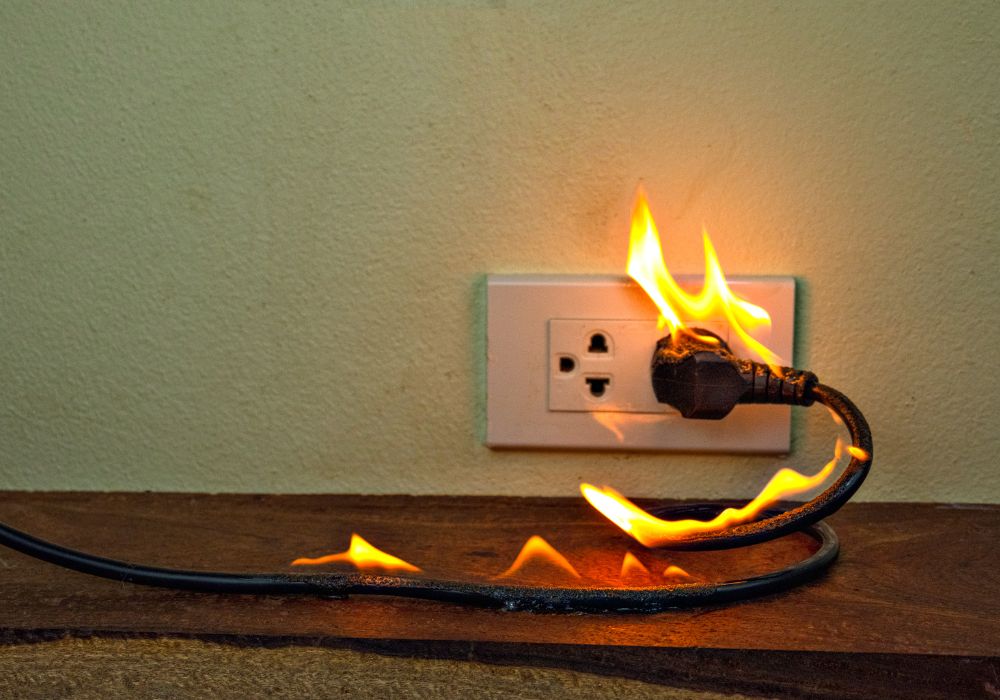
Electrical popping sounds can also be a warning sign of potential electrical fires. Faulty wiring or loose connections can cause electrical arcs, which can lead to overheating and cause a fire. Electrical fires can spread quickly, cause significant damage to the house, and even risk human life.
To reduce the risk of electrical fires, it’s essential to take preventative measures such as regular maintenance and inspection of the electrical system.
Additionally, avoiding overloading circuits and outlets can help prevent electrical fires from occurring.
Risk of Electrocution
Electrical popping sounds can also indicate a risk of electrocution. Loose or faulty connections can cause electrical current to flow where it’s not supposed to, increasing the risk of electrocution.
This can be especially dangerous if the electrical system is not grounded correctly, as it can lead to an electric shock.
Avoid DIY electrical repairs and call a licensed electrician to inspect and repair any problems with the electrical system. Also, preventing the use of electrical devices in wet areas such as bathrooms and kitchens can help reduce the risk of electrocution.
Why Is There Electrical Popping Sounds In My House?
You may be hearing electrical popping sounds in your house for several reasons. One of the most common causes is a loose or faulty electrical connection. This can occur when the wires inside an electrical device or appliance become loose or the connections inside an electrical outlet or switch become worn over time.
When electricity flows through an open or faulty connection, it can create an electrical arc, which produces a loud popping sound.
There are several possible causes of electrical popping sounds in your house, including:
- Loose or faulty electrical connections: When the wires inside an electrical device or appliance become loose, or when the connections inside an electrical outlet or switch become worn over time, it can create an electrical arc and produce a popping sound.
- Power surges: A power surge occurs when a sudden increase in electricity flows through your home’s electrical system. This can happen when lightning strikes nearby or when there is a problem with your utility company’s power grid. When a power surge occurs, it can create a loud popping sound. It can also damage your electrical devices and appliances.
- Short circuits: A short course occurs when two electrical conductors have an unintended connection. This can cause a sudden flow of electricity, producing a popping sound.
- Electrical overloads: An electrical overload occurs when there is too much demand on a particular circuit. This can happen when too many electrical devices or appliances are plugged into the same outlet or circuit or when a single device or machine uses too much electricity.
- Faulty electrical equipment: If you have electrical devices or appliances that are old or damaged, they may be the source of the popping sounds.
How Can I Fix Loud Electrical Popping Sound?
Fixing a loud electrical popping sound depends on the underlying cause of the problem. Here are some steps you can take to resolve the issue:
- Turn off the power: If you hear loud electrical popping, you should first turn off the power to the affected area of your home. You can do this by flipping the circuit breaker or unplugging the affected devices or appliances.
- Inspect the electrical connections: Check the electrical connections inside the affected devices or appliances and any electrical outlets or switches in the area. Look for signs of wear or damage, such as frayed wires or loose connections.
- Replace damaged components: If you notice any damage or wear, replace the affected parts immediately. This could involve replacing a damaged electrical outlet or switch or repairing or replacing a broken electrical device or appliance.
- Install a surge protector: If you’re experiencing frequent power surges, consider investing in a whole-house surge protector. This device can protect your home’s electrical devices and appliances from power surges and can also prevent loud popping sounds from occurring.
- Call a licensed electrician: If you’re uncomfortable addressing the issue or unsure how to proceed, it’s always best to call a licensed electrician to inspect and repair the problem. Electrical work can be dangerous, and it’s always better to be safe than sorry.
Fixing a loud electrical popping sound involves identifying the underlying cause of the problem and taking the appropriate steps to address it. By following the above steps, you can help ensure the safety and reliability of your home’s electrical system.
Preventing electrical popping sounds is crucial to ensuring the safety and reliability of your home’s electrical system. By taking preventative measures and following best practices, you can reduce the risk of electrical popping sounds and ensure the proper functioning of your electrical system.
Regular Maintenance and Inspection of the Electrical System
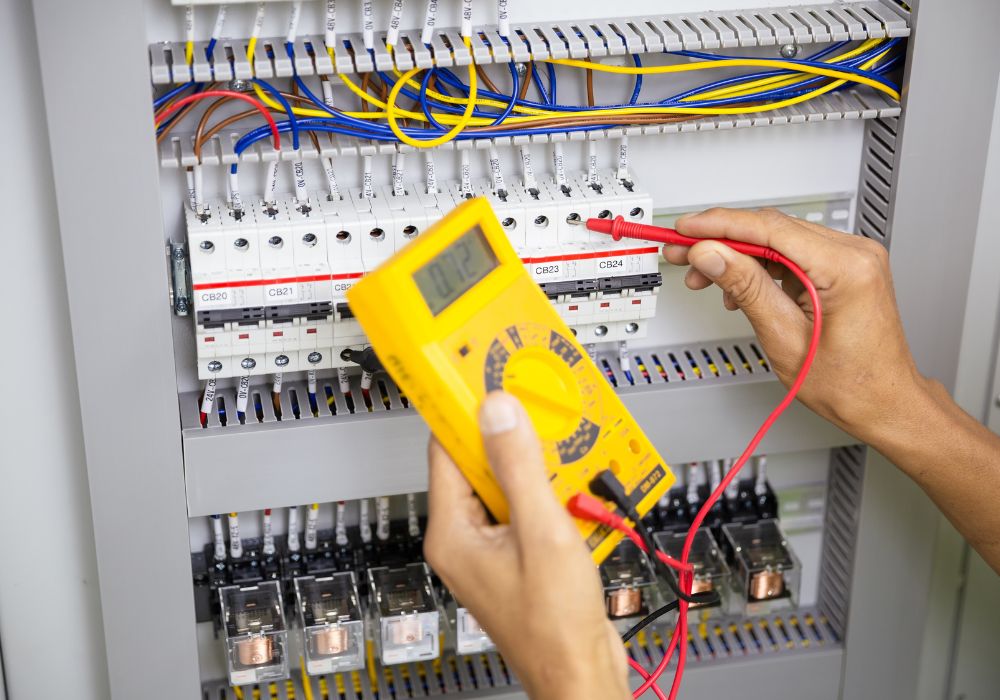
Regular maintenance and inspection of your electrical system can help identify and prevent potential problems that could lead to electrical popping sounds.
This includes checking for loose or faulty connections, inspecting circuit breakers and fuses, and ensuring the electrical system is grounded correctly.
Hiring a licensed electrician to perform regular maintenance and inspection of your electrical system can help prevent electrical popping sounds and ensure the safety and reliability of your home’s electrical system.
Proper Use of Electrical Devices and Appliances

Proper use of electrical devices and appliances can also help prevent electrical popping sounds. This includes following the manufacturer’s instructions and safety guidelines, avoiding the use of damaged electrical devices and appliances, and unplugging devices when not in use.
For example, overusing electrical devices such as hair dryers and space heaters can cause electrical overload and potentially lead to electrical popping sounds.
Following the manufacturer’s instructions and safety guidelines, homeowners can prevent electrical popping sounds caused by improper use of electrical devices and appliances.
Avoid overloading circuits and outlets.
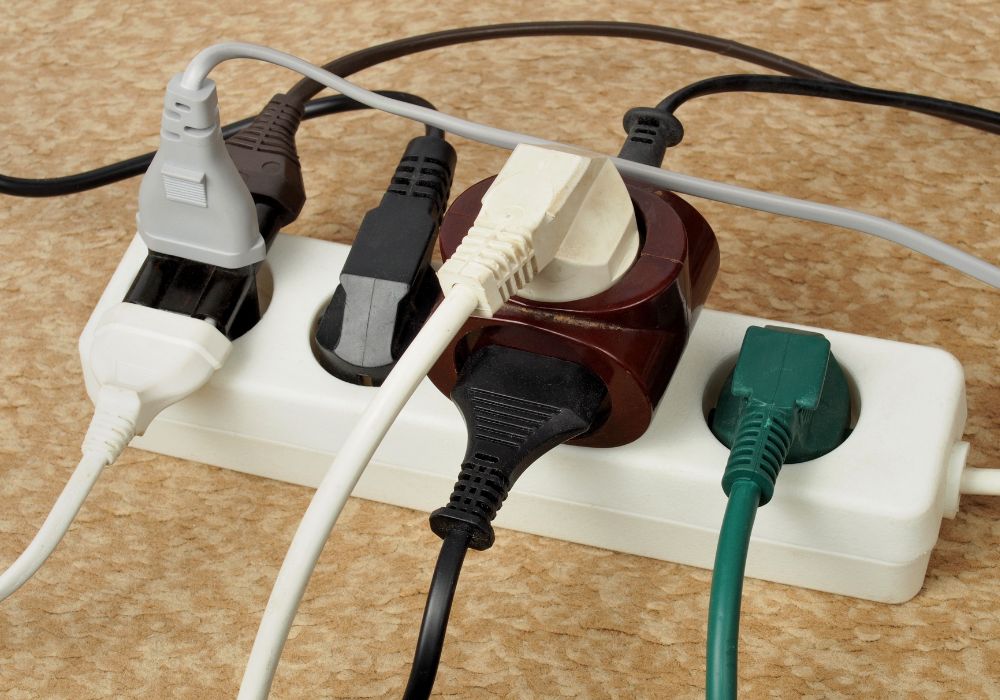
Overloading circuits and outlets can also lead to electrical popping sounds. This occurs when too many devices are plugged into a single circuit or outlet, causing the circuit to become overloaded and potentially leading to electrical popping sounds.
To avoid overloading circuits and outlets, homeowners can distribute electrical devices and appliances across different circuits and outlets and avoid plugging too many devices into one outlet.
You can prevent electrical popping sounds and ensure the safety and reliability of your home’s electrical system.
Regular maintenance and inspection of the electrical system, proper use of electrical devices and appliances, and avoiding overloading circuits and outlets can help reduce the risk of electrical popping sounds and ensure the appropriate electrical system functioning.









